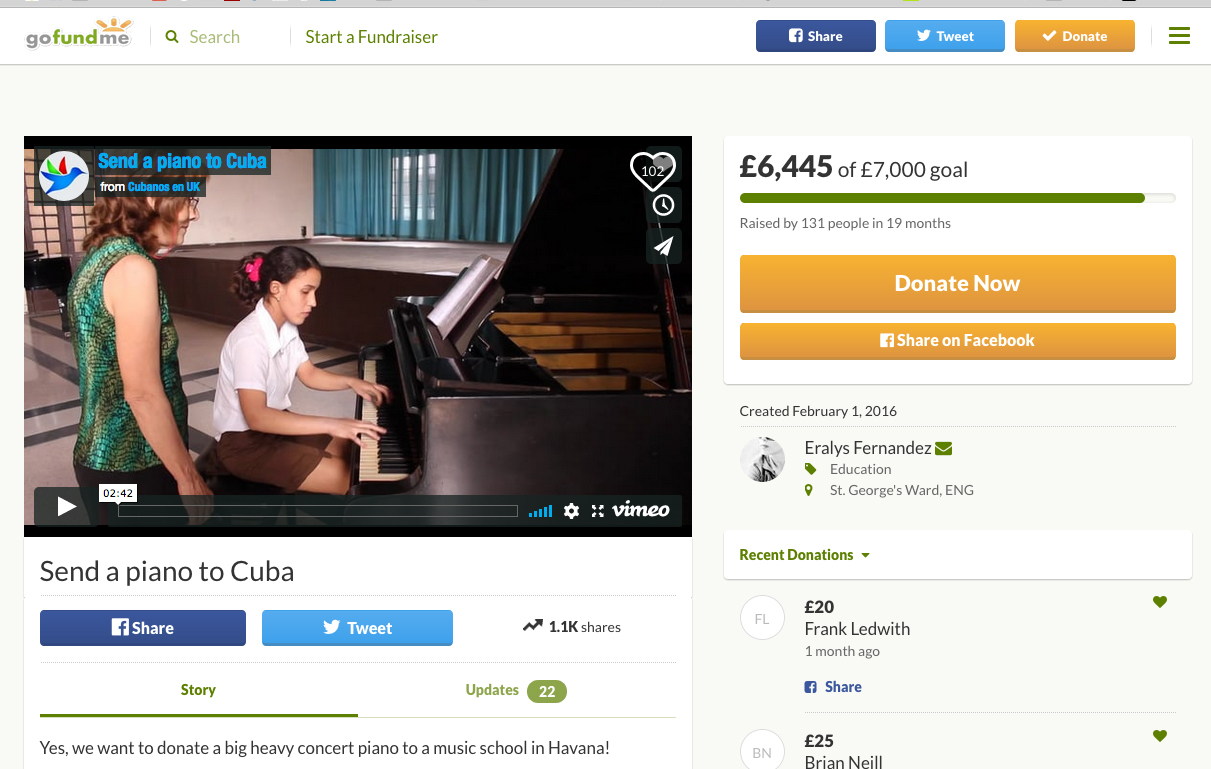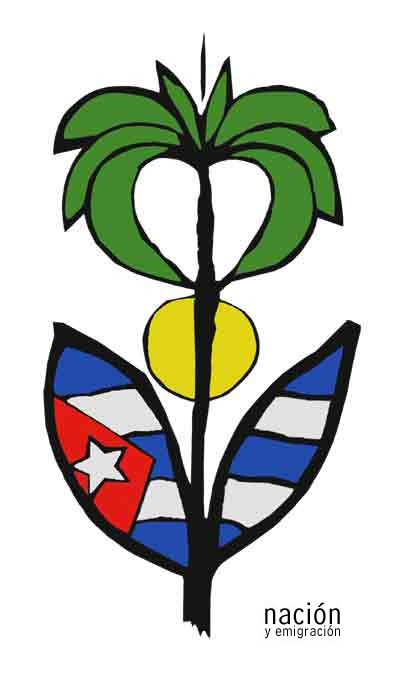Cubans in the UK demand protection from the US blockade
- Detalles
- Publicado: Lunes, 30 October 2017 22:06

Letter to the Minister of State at the Foreign and Commonwealth Office
29 October 2017
The Rt. Hon Sir Alan Duncan MP
Minister of State at the Foreign and Commonwealth Office
King Charles Street
London SW1A 2AH
www.gov.uk/fco
Dear Sir Alan Duncan MP
Subject: GoFundMe and Stripe block funds that ‘benefit’ Cuba or Cubans
I am writing to draw your attention to another violation of an elementary right of Cuban residents in the UK to help our country of origin.
For the second time our community project ‘Send a piano to Cuba’ has been victim of the extra-territorial implementation of sanctions of the United States Blockade against Cuba, and companies operating in United Kingdom, such as Eventbrite, GoFundMe and Stripe have obstructed our fundraising campaign.
On 19 March 2016 our association Cubanos en UK (Cubans in the UK) wrote to the Foreign Secretary and the FCO to report the confiscation of £360 by the company Eventbrite from the sale of tickets for a fundraising classical music concert. Eventbrite argued that this was: ‘pursuant to US Department of Treasury, Office of Foreign Asset Controls (OFAC) regulations and sanctions program’.
In a letter dated 5 July 2016, Jonathan Williams, Head of the FCO’s Mexico, Cuba and Central America Team Americas Directorate replied to Cubanos en UK:
‘The UK, along with the rest of EU, has consistently voted in the UN General Assembly against the embargo. We also support the EU’s position that US sanctions should not apply extraterritorially, including here in the UK.
On 19 April, FCO Minister of State, the Rt Hon. Hugo Swire MP, raised our objections about the extraterritorial effect the US embargo on Cuba was having on trade and investment between the UK and Cuba, with US Assistant Secretary of State Roberta Jacobson. In January FCO and HM Treasury officials met the Financial Conduct Authority to discuss what we could do to support British entities, such as Cubanos en UK, experiencing difficulties conducting financial transactions with Cuba. We will continue to raise our objections with the US, and to discuss this issue with officials at HM Treasury and the Department for Business, Innovation and Skills.’
We appreciate the UK vote against the ‘embargo’ in the UN General Assembly and we trust that the UK government will continue this policy, along with the rest of the international community. However, unless UK laws prohibiting the extraterritorial imposition of the US blockade are enacted, the kind of punitive and illegal actions will continue to be taken against UK citizens.
In September 2017, our association received a message from Stripe, which is an US company processing donations through GoFundMe, warning that the account would have to be closed following the new Cuba policy announced by President Trump on 16 June 2017:
‘As you may be aware, on June 16 of this year, the U.S. government announced its intention to impose new restrictions on US firms working with Cuban businesses. As a result, we’ve made a decision to deactivate user accounts that may conflict with this new policy or where we may be unable to meet increasing compliance oversight obligations. Effective today, you will no longer be able to accept additional transactions on your account. You’ll continue to receive pay-outs from your Stripe account to your bank account until you’ve received all of your remaining funds’.

Regardless of the US blockade regulations, these companies’ actions are illegal. British and European Laws regulate against the extra-territorial application of the US blockade. In 1996, the European Council adopted Regulation (EC) No. 2271/96 on ‘protecting against the effects of the extra-territorial application of legislation adopted by a third country, and actions based thereon or resulting therefrom.’ Also in 1996, the British parliament approved Order No. 3171 relating to the Protection of Trading Interests Act on ‘The Extraterritorial US Legislation’, which enables the British government to penalise any natural or legal person complying with extraterritorial aspects of US blockade on British territory.
In December 2015, the British Treasury responded to a question by Lord Hutton about the ‘advice…given to UK banks regarding business and personal financial transactions between UK individuals or UK-registered companies and Cuban counterparties based in Cuba’. The answer was: ‘There are no UK, EU or UN sanctions regimes restricting transactions between the UK and Cuba. The US has economic sanctions against Cuba. EU legislation (Council Regulation [EC] No 2271/96) provides protection against and counteracts the effects of the extra-territorial application of US Cuba sanctions within the EU.’
United States sanctions against Cuba are also discriminatory, racist and unlawful under the UK Race Relations Act of 1976.
The US blockade of Cuba, imposed since 1962, have causes damage and suffering to the Cuban people. It has affected every sector of Cuban society and the economy, creating scarcity and raising the costs of importing goods and equipment and denying Cuba access to external finance. The report Cuban have published this year show that between April 2016 and June 2017 alone the cost of damage to the island is estimated to be over $4.3 billion.
The total cost of the US blockade over 57 years is calculated at $822 billion. As the UK government is aware, US President Donald Trump has reversed many of the steps taken by Barack Obama to lessen the impact of the blockade.
The extra-territorial application of OFAC regulations not only affects Cubans; it affects any British citizens and residents attempting to make any transaction with Cuba (and Cuban citizens) via any US-linked entity, no-matter where it is based. We urge you to take legal action through the British courts against GoFundMe, Stripe, Eventbrite and any other companies illegally applying US laws in Britain.
I look forward to hearing what action you have taken.
Thank you in advance.
Yours sincerely,
Daniesky Acosta
Director, Cubanos en UK






